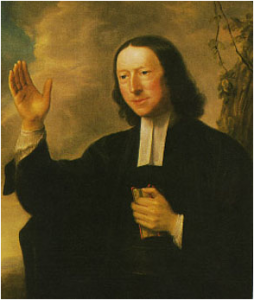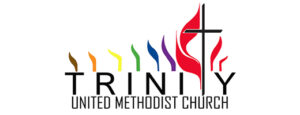Deep UMC roots and history.
 Trinity United Methodist Church is a congregation of The Northern Illinois Conference of The United Methodist Church. The United Methodist Church is in the family of Protestant Christian churches. We follow the teachings of Jesus and John Wesley, which include primarily loving God and loving neighbor. All are invited to engage their faith through study, questioning, debating, and praying. Together through the grace of the Holy Spirit, we seek to understand God, ourselves, and our world.
Trinity United Methodist Church is a congregation of The Northern Illinois Conference of The United Methodist Church. The United Methodist Church is in the family of Protestant Christian churches. We follow the teachings of Jesus and John Wesley, which include primarily loving God and loving neighbor. All are invited to engage their faith through study, questioning, debating, and praying. Together through the grace of the Holy Spirit, we seek to understand God, ourselves, and our world.
Our mission is to be a multi-generational Christian community spreading God’s love and welcoming all, offering spiritual growth and opportunities for compassionate service. We welcome all and see all persons as created in the image of God and bearing sacred worth and dignity. We invite all persons to participate fully in the life of our church regardless of age, race, ethnic background, sexual orientation, gender identity, physical or mental condition, marital status, family situation, or economic standing.
While our roots in Mount Prospect are more than 65 years old, we are making an impact now in being an inclusive, welcoming and active faith community. Our membership comes from several northern and northwest suburbs of Chicago. Worship service at 10:30 am give guidance and inspiration eto personal faith and social interaction. The congregation hosts a variety of community groups and organizations including Al-Anon, and PADS, as well as providing many opportunities for outreach and service. Our future continues to be shaped by a spirit of open minds, open hearts, and open doors.
For additional information, please contact the church’s pastor the Pastor Sam Park at 847.439-0950 or see the denomination’s website at www.umc.org.
United Methodists believe that faith is formed by God’s grace and assurance and the power of the Holy Spirit through personal, trusted relationships in the home and with the church.
God’s Grace
The miracle of transformation is, from beginning to end, a work of God’s grace. To be transformed is to be changed from one way of being to a new way of being. God’s transforming grace is available to all.
Prevenient grace calls us into relationship with God before we are even aware of God.
Justifying grace offers reconciliation, forgiveness of sin, freedom from the power of guilt, and offers the possibility of new relationships with God & others.
Sanctifying grace enables us to grow into the image of Christ and to live as a sign of God’s reign among us.
Means of Grace
John Wesley identified several ways to experience or receive God’s free gift of grace. They are Bible study, worship, participating in the sacraments of Baptism and Holy Communion, serving others, Christian conversation and fasting.
Knowing & Experiencing God
God is present and active in our everyday lives and in our world! The Christian faith is concerned about our relationships with God through Jesus Christ, with one another, and with all of Creation. God’s reign is one of justice, love, mercy and equality. No one is to be excluded.
The Wesleyan Quadrilateral
United Methodists use Scripture, Reason, Tradition and Experience to know and experience God.
Vows
United Methodists vow to serve the Church and its ministries with our prayers, presence, gifts, service, and witness.
Christian Education
The ministry of Christian education is holistic. Christian education includes how we think and learn; what we feel and experience; and how we put our faith into action. Through these experiences our lives will be transformed by the power of God’s grace.
Children learn in a multitude of ways. There are eight common ways of learning that are generally accepted. Every child (and person) learns in all of these ways, but every person has a preferred style of learning, a particular way he or she best perceives and processes information.
The Cokesbury Deep Blue (children) and Groove (youth) curricula are designed to engage students with different learning styles. Being conscious of the ways your children learn will help them have good experiences and retain what they learn at church.
Verbal learners learn best by saying things aloud, hearing words spoken, and seeing words in print. They become frustrated without verbal stimulation.
Logical learners learn best with numbers, reasoning, asking and answering questions, and categorizing and classifying things. They find it difficult to function in arenas of confusion.
Visual learners learn best through creating mental images; manipulating shapes and objects; doodling, drawing, art activities, mazes, maps, and diagrams. They are discouraged by too many printed words.
Physical learners learn with physical movement, moving while learning, and touching objects to be learned about. They enjoy crafts, dances with songs, drama, and active games. They get frustrated sitting for long periods of time.
Musical learners learn through music, songs, and rhythmic patterns combined with information. They enjoy singing, making and playing musical instruments, and learning Bible verses set to music. Musical learners are bored by lectures.
Social learners learn best in communication with others, working cooperatively in teams, and comparing ideas and concepts. They enjoy working on service projects. Social learners are stifled by long periods of silent study.
Independent learners learn best by thinking about personal feelings and values, self-reflection, and working independently on projects. They enjoy prayer, meditation, and journaling. Independent learners may withdraw from group activities.
Natural learners enjoy learning through the natural world around them by investigating, experimenting, and observing the phenomena of the natural world. Natural learners are frustrated in enclosed spaces and by being indoors for extended periods of time.
